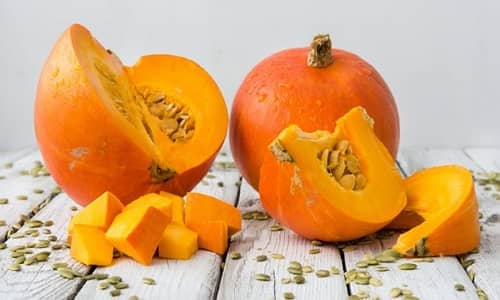Pumpkin benefits, calories - good food for pregnant women
Pumpkin Nutrition

| Pumpkin (100g) Nutrition | |||
| Carbohydrate | Protein | Fat | Calories |
| 8g | 1g | 0g | 33kcal |
| Main Nutrition | Beta -carotene, vitamin A, vitamin C | ||
| Main Benefits | Improves skin inflammation and has anti-cancer properties | ||
| Side Effects | Over -intake causes abdominal pain or diarrhea | ||
Pumpkins are plump, nutritious vegetables and nutrient-dense foods. Pumpkin is high in vitamins and minerals and low in calories. It’s also a great source of beta-carotene, a carotenoid that the body converts into vitamin A. There are many ways to cook pumpkin, including incorporating it into desserts, soups, salads, or using it in place of butter.
2. Pumpkin Benefits

1. Eye Health
It is very common for vision to decrease as we age. Pumpkin is rich in nutrients that improve vision as the body ages. The beta-carotene content in pumpkin provides the vitamin A your body needs. Vitamin A deficiency is a very common cause of blindness. Pumpkin also contains lutein and zeaxanthin, which significantly lower the risk of macular degeneration and cataracts. It also contains high amounts of vitamins C and E, which act as antioxidants and prevent free radicals from damaging eye cells.
2. Anticancer effect
Cancer is a serious disease in which cells grow abnormally. Cancer cells multiply rapidly by producing free radicals. Pumpkins are rich in carotenoids, compounds that can act as antioxidants. This helps neutralize free radicals, which may protect against certain cancers. People who consumed high amounts of alpha-carotene and beta-carotene had a significantly lower risk of stomach cancer. Carotenoids also lower the risk of throat, pancreatic, breast and other cancers.
3. Heart health
Pumpkin contains a variety of nutrients that may improve heart health. These are potassium, vitamin C, and dietary fiber, which have been linked to heart benefits. People with high potassium intake have been shown to have lower blood pressure and a reduced risk of stroke. These are two risk factors for heart disease. Pumpkin is also rich in antioxidants, which help protect bad LDL cholesterol from oxidation, lowering your risk of heart disease.
4. Skin health
Pumpkin contains nutrients that are good for your skin. It is rich in carotenoids, such as beta-carotene, which the body converts into vitamin A. Carotenoids, such as beta-carotene, can act as natural sunscreens. Once ingested, carotenoids are transported to various organs, including the skin. Here, it protects skin cells from damage caused by harmful UV rays.
4. Control of body balance
Pumpkin is also rich in vitamin C, which is essential for our bodies. You need this vitamin to make collagen, a protein that keeps your body healthy. Pumpkin also contains lutein, zeaxanthin, vitamin E and many more antioxidants that have been shown to strengthen the skin’s defenses against UV rays.
3. PumpkinHow to make delicious porridge
4. Pumpkin Side Effect
- If you are a lactating mother, it is recommended to be careful when consuming pumpkin as it may interfere with breast milk production.
- Beta-carotene, the main ingredient in pumpkin and associated with a variety of health benefits, can actually cause harm if consumed in excess.
- Pumpkin has a cold nature, so people with a cold body may experience symptoms such as stomachache and diarrhea if they consume too much.